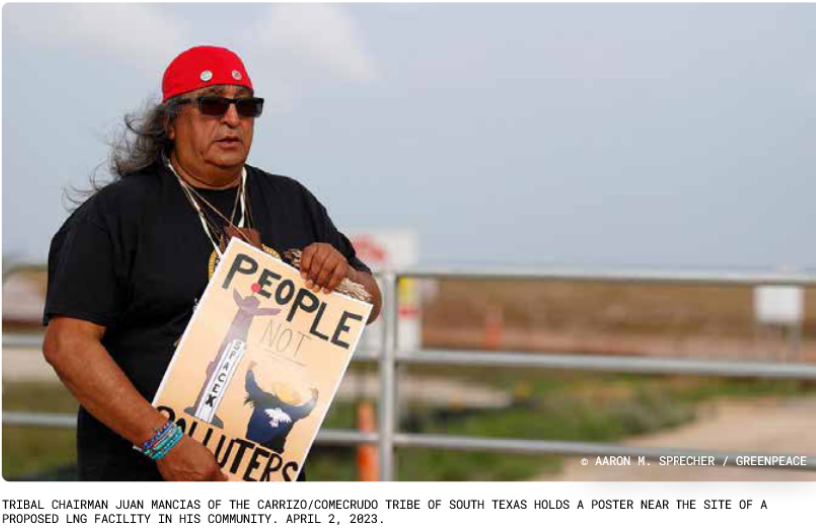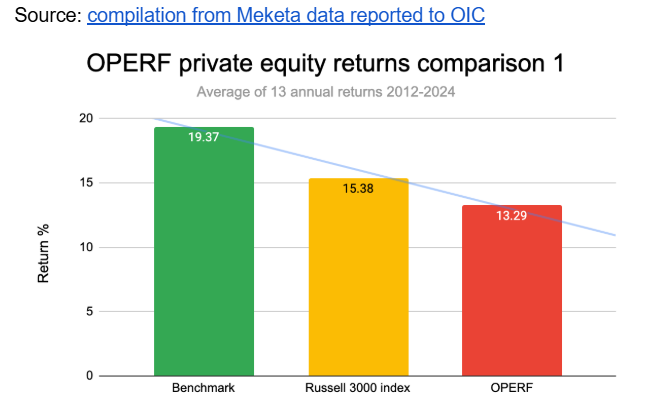Divest Oregon’s New Report on Climate Risk to Oregon Public Employees’ Retirement
“The major point is strong, valid and well presented — abating climate change produces economic and investment benefits far outweighing costs. The stewards of pension fund assets should exercise all the pressure they can to avoid the severest climate outcomes."
RICCARDO REBONATO, Professor of Finance, EDHEC Business School; Scientific Director, EDHEC Risk Climate Institute; author, “How to Think About Climate Change”
Pension fund managers are confronting a tumultuous financial landscape. What is creating uncertainty? Inflation, tariffs, artificial intelligence, the energy transition, an oversupply of liquid natural gas, the rise of private equity and private credit…and the unique risk of climate change, which is the mother of all risks.
Why is climate change an overriding risk to financial portfolios? Divest Oregon’s Rick Pope explains why in the Divest Oregon 2025 Climate Risk Review: No Place to Hide, a deep dive into current climate, economic and investment research. It stresses a core theme: The portfolio of retirement funds cannot be diversified to offset the risk of unabated climate change. There is nowhere for fund managers to hide from the fact that the entire portfolio of investments will be affected by climate catastrophe.
Why is this important? Public pension funds in the US control nearly $11 trillion in assets of nearly 36 million state and local beneficiaries who depend on their funds to support their retirement. How fund managers invest the funds in their care can influence the market and influence public policy.
Praise for the report from Treasurers, academics, and climate activists provides insight into the report’s impact.
As the report documents, acting now to offset climate change will cost far less and harm asset values far less than accelerating climate change. Acting together, fiduciaries can move the market by investing in climate solutions, rather than financing climate destruction.
How does the Climate Risk Report fit into the rest of Divest Oregon’s current work to pressure the Treasury to stop investing in fossil fuels?
- Divest Oregon submitted testimony in support of the current Treasurer's bill to reduce emission-creating investments in the portfolio. Oregon’s Treasurer is the first in the country to put forward a legislative mandate to consider climate risk and just transition in its investment decisions as it moves toward a low-carbon economy (HB 2081).
- The Treasurer’s proposed legislation (HB 2081) requires a just transition to clean investments. Divest Oregon and allies are working to articulate steps to implementation of this provision by the Treasury.
- The legislation has a reporting requirement. Transparency is an issue since approximately half of the PERS retirement fund has been invested in private investments, generally called private equity, which are currently secret. Reporting is a key tool in measuring progress toward reducing climate risk to the portfolio – and to all of us.
- A major part of our ongoing work is to pressure the Treasury to create a comprehensive and rigorous plan to stop the portfolio from contributing to climate degradation.
- Divest Oregon has a new campaign to encourage the Treasury to add a fossil fuel free option to the Oregon 529 Funds.
The release of the 2025 Climate Risk Review clearly and unequivocally puts the Oregon Investment Council and the Treasury on notice that they must act to protect PERS assets from the risk of depressed values from climate change. As fiduciaries who must protect the financial well-being of their beneficiaries, their mandate is to assess risk – and climate change is an overriding risk – and factor it into their investment and resource allocation decisions. Confronting the impact of climate is the essence of their job.
“'No Place to Hide: A Climate Risk Review' by Divest Oregon is a powerful review of the system-level risks that climate change poses to the global economy, and therefore to the investment returns of long-term intergenerational pension funds. This report makes clear that pension fund fiduciaries need to act in the near term to promote a just clean energy transition if we are going to reduce economic damage from climate change. This release is a timely and valuable resource which provides practical recommendations and a comprehensive and actionable framework as asset owners, fellow fiduciaries of pension funds and other universal, long-term investors are seeking to align their portfolios with long-term sustainability goals while navigating an ever-evolving regulatory landscape.”
BRAD LANDER, Comptroller, City of New York

Oregon State Treasury should engage or divest from companies fueling a new era of resource conflicts









